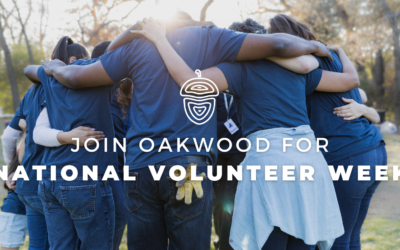Did you know? June 21st is marked as the first day of summer and is generally noted as being the longest day of the year. Not because there are literal hours added into the day but because the length of time that passes from sun up to sun down is statistically longer than what many of us have been experiencing during the colder winter months. This change in daylight hours has been known to trigger an effect in adults with dementia, otherwise known as sundowning, an internal urge to get up and explore their surroundings. For some caregivers, this happening might create some concern, especially when summer temperatures have climbed sky-high, even at nighttime, and the risk for heat stroke is even greater. So, to help approach your loved one’s need to explore during odd hours, let’s understand more about what sundowning is and what causes it.
What Is Sundowning?
The Alzheimer’s Association defines sundowning as being an “increased confusion that people living with Alzheimer’s and dementia may experience from dusk through night. It is not a disease but a set of symptoms or dementia-related behaviors that may include difficulty sleeping, anxiety, agitation, hallucinations, pacing, and disorientation.” For some caregivers, sundowning may look like a string of evenings when their loved ones aren’t sleeping through the night and instead find themselves getting up from their beds and maybe even leaving the house. This can sometimes create stress for both the caregivers and their loved ones.
While there is no exact cause known for why some loved ones may experience sundowning symptoms, it is believed that the rising heat and changes in daylight hours can heighten the potential for sundowning episodes. Why? Because the height of summer temperatures and the increased length of sunlight could have older adults with dementia feeling confused while their internal body clock attempts to adjust to a new routine.
When They Get Older adds that there are lots of additional factors that can play into why a person is sundowning, including “unmet needs that aren’t being communicated, such as tiredness, hunger, thirst, and disturbances to their daily routine.”
My Loved One With Dementia Is Sundowning. What Do I Do?
If you find that your loved one is wanting to explore during the late evening into the night, assess first whether there is a certain physical need that perhaps has not been met. The Alzheimer’s Society states that sometimes what seems like sundowning could be the person trying to communicate needing the toilet, feeling hungry, or being in pain. The Cleveland Clinic also reports that infection, dehydration, physical illness, pain, and side effects of certain medications could also potentially increase the happenings of sundowning. With this in mind, if you notice your loved one is experiencing changes in their nighttime behavior, speak with their doctor about their possible need for a medical exam.
For caregivers whose loved ones continue to experience sundowning, the National Institute on Aging offers the following recommendations on coping with and preventing sundowning:
- Reduce noise, clutter, or the number of people in the room.
- Make the early evening a quiet time of day. Play soothing music, read, or go for a walk.
- Adjust lighting, letting in natural light during the day, and try softer room lighting in the evening.
- Enjoy time outside —exposure to bright light can help reset the person’s internal body clock.
- Get physical activity or exercise each day, but do not plan too many activities during the day. A full schedule can be tiring.
- Get daytime rest if needed, but keep naps short and not too late in the day.
- Do not serve coffee, cola, or other drinks with caffeine late in the day.
Sundowning Can Be Frustrating For Your Loved One Too
Sleep disturbances can be hard, especially when you know in the back of your mind that you already have a jam-packed schedule kicking off first thing in the morning. This can make it easy to feel frustrated with your loved one when they want to explore during the wee hours of the night rather than getting some much-needed shut-eye. But remember, these changes can be disturbing for your loved one too, and they might even be feeling just as frustrated as you are. For this reason, the Alzheimer’s Association recommends this approach to help bring calm and peace of mind to your loved one with dementia when they are sundowning:
- Approach them in a calm manner.
- Find out if there is something they need.
- Avoid arguing.
- Offer reassurance that everything is all right.
- Don’t use physical restraint. Allow the person to pace back and forth, as needed, with supervision.
Did You Know?
Oakwood Creative Care is bringing back the JOY in aging! We believe a diagnosis should not have to define your life. Instead, we have devoted our mission to reigniting hope for caregivers and older adults with Alzheimer’s, dementia, and other age-related challenges. Click the button below to learn more about how we do this through our research-based, cutting-edge, creative care model found at each of our Day Clubs.




